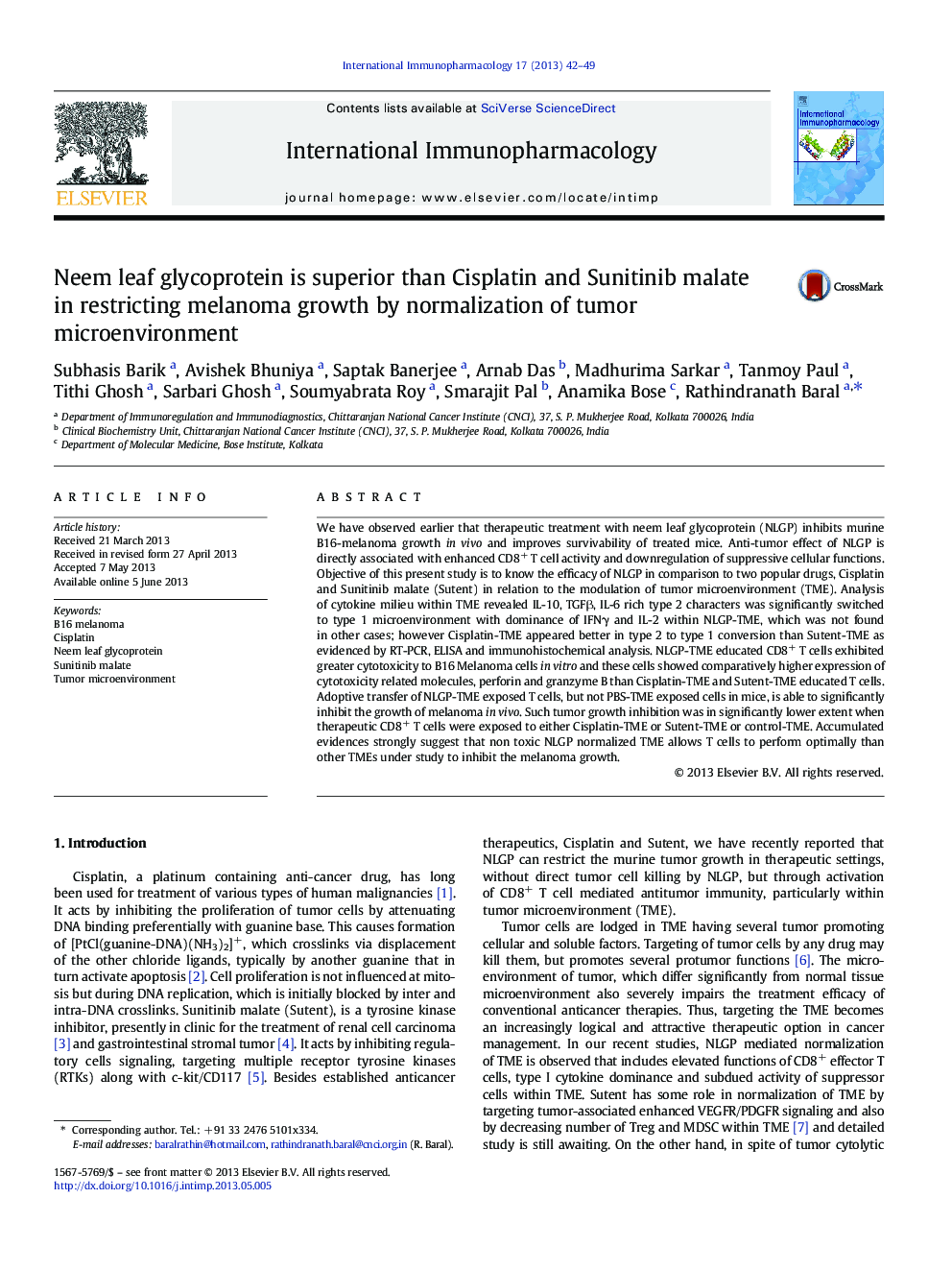| Article ID | Journal | Published Year | Pages | File Type |
|---|---|---|---|---|
| 5832919 | International Immunopharmacology | 2013 | 8 Pages |
Abstract
We have observed earlier that therapeutic treatment with neem leaf glycoprotein (NLGP) inhibits murine B16-melanoma growth in vivo and improves survivability of treated mice. Anti-tumor effect of NLGP is directly associated with enhanced CD8+ T cell activity and downregulation of suppressive cellular functions. Objective of this present study is to know the efficacy of NLGP in comparison to two popular drugs, Cisplatin and Sunitinib malate (Sutent) in relation to the modulation of tumor microenvironment (TME). Analysis of cytokine milieu within TME revealed IL-10, TGFβ, IL-6 rich type 2 characters was significantly switched to type 1 microenvironment with dominance of IFNγ and IL-2 within NLGP-TME, which was not found in other cases; however Cisplatin-TME appeared better in type 2 to type 1 conversion than Sutent-TME as evidenced by RT-PCR, ELISA and immunohistochemical analysis. NLGP-TME educated CD8+ T cells exhibited greater cytotoxicity to B16 Melanoma cells in vitro and these cells showed comparatively higher expression of cytotoxicity related molecules, perforin and granzyme B than Cisplatin-TME and Sutent-TME educated T cells. Adoptive transfer of NLGP-TME exposed T cells, but not PBS-TME exposed cells in mice, is able to significantly inhibit the growth of melanoma in vivo. Such tumor growth inhibition was in significantly lower extent when therapeutic CD8+ T cells were exposed to either Cisplatin-TME or Sutent-TME or control-TME. Accumulated evidences strongly suggest that non toxic NLGP normalized TME allows T cells to perform optimally than other TMEs under study to inhibit the melanoma growth.
Related Topics
Life Sciences
Immunology and Microbiology
Immunology
Authors
Subhasis Barik, Avishek Bhuniya, Saptak Banerjee, Arnab Das, Madhurima Sarkar, Tanmoy Paul, Tithi Ghosh, Sarbari Ghosh, Soumyabrata Roy, Smarajit Pal, Anamika Bose, Rathindranath Baral,
